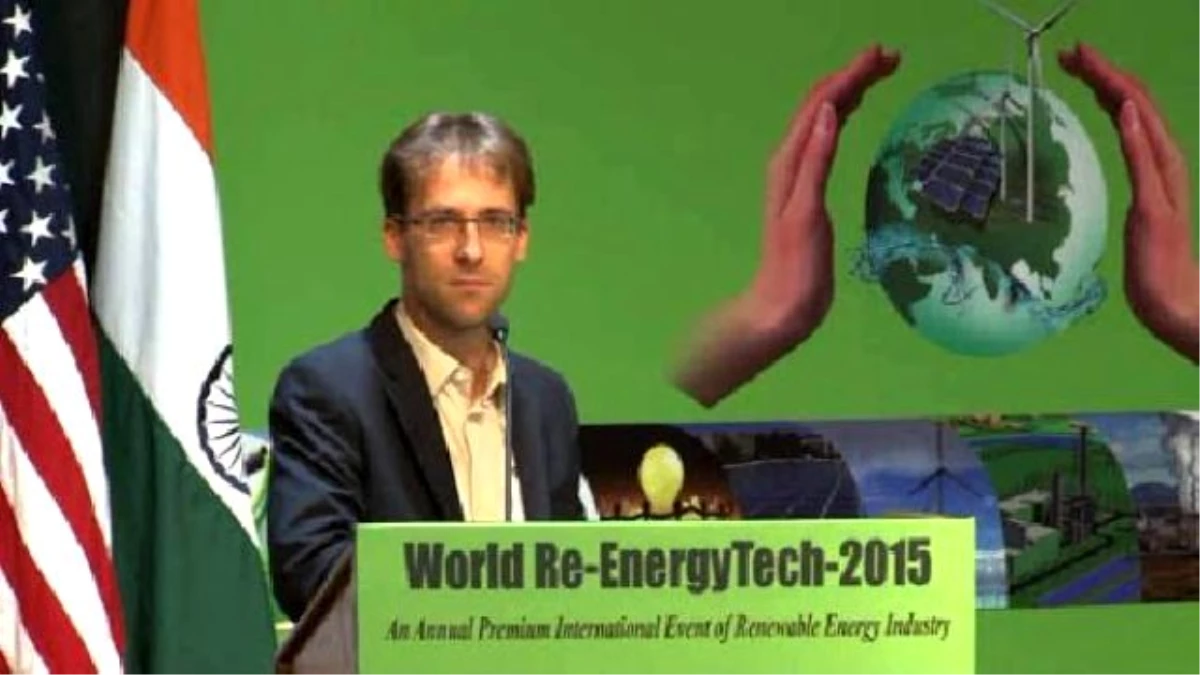Solar And Wind Rich Turkey Should Ease Plant Licensing

Turkey with higher potential for wind and solar should accelerate transition process to "cost-efficient" renewable energy sources, while avoiding the "inflexible" nature of nuclear, urged Agora Energiewende Deputy Executive Director Markus Steigenberger.
Turkey with higher potential for wind and solar should accelerate transition process to "cost-efficient" renewable energy sources, while avoiding the "inflexible" nature of nuclear, urged Agora Energiewende Deputy Executive Director Markus Steigenberger.
Steigenberger from the Berlin-based company underlined Germany's determination to transform its energy to renewables and called on Turkey to ease licensing processes for wind and solar plants.
Steigenberger told that Germany, which was known as a leading producer for nuclear energy, has given a clear decision by parliament and the government to leave nuclear and fossil, speaking to DHA after a climate panel entitled "Energy Policies after Paris" in Istanbul.
The United Nations Climate Change Conference in Paris in late 2015 has called for a transformation in energy.
"There is basically consensus amongst political parties and biggest chairs of the society that we want to transform from nuclear, fossil to renewables. In the end of 2022, the last nuclear plant will be shut down, and it is not contestable" he said.
Renewable's upsurge from 3 percent to 33 percent
Renewable's share in Germany has started with 3 percent in 1990, than increased to 6 percent in 2000. This number saw 33 percent in 2015, which was a record year for wind, Steigenberger said.
"The buildup of renewable went actually much quicker than expected, so we are overshooting our targets. However, installing renewable energy is easy, in a way. The question we have is how to transform the entire system" he added.
Steigenberger stressed that renewables in Germany focus on solar and wind in particular because they are "the cheapest technologies" chosen for the country's future power system.
However, wind and solar are "weather dependent" and from the system perspective "a problem" he said.
"What about the rest of the system? We want a reliable system, not blackouts. You have to have flexibility in order to balance wind and solar" Steigenberger added.
"Technical solutions are clear: storage, grids, flexible gas, and demand-response, which means to ask big industrial plants, consumers to ramp down the use and demand, as they use so much electricity" Steigenberger said.
The fifth option Germany has is "integration with other sectors such as heating and transportation".
"Much more complicated is the market, as we want to achieve this as cost effective as possible. In Germany, we believe that this can only be delivered by market design, synchronizing and organizing the system" Agora Deputy Executive Director said.
According to Steigenberger, the market design should "make sure to get rid of high carbon technologies, and assure security of the system and electricity whenever needed." "This is for what we do not have an answer yet" he explained.
"Turkey's wind and solar much better than Germany"
What is the suggestion of Germany, "a country of clouds" to Turkey, "the country of sun", according to the energy expert?
"Germany was one of the most difficult countries because we do not have solar. Wind conditions are very bad, as well. In Turkey, wind and solar is much better than Germany" he responded.
"What is your technology? Nuclear, coal, gas, renewables… If you leave aside all other elements, do not mention climate change, health, and just look at the costs; in Germany wind is the cheapest, and solar will be the cheapest in ten years from now" he said.
Having slammed Turkey making the process "artificialy expensive" and its "complicated administrative and license process" Steigenberger said, it took more time for Turkey to install plants for renewables. This challenge also raises uncertainty for investors, he urged, emphasizing Turkey's higher capacity for solar comparing to Germany.
"In Germany, licensing is very easy. We install PV (photovoltaic) plants in two-three months; in Turkey you need more than a year" he said.
"Inflexible nuclear, not a good choice"
Turkey has kicked off a controversial project for its first nuclear power plant in Akkuyu region of Mersin province, while Germany phases out nuclear.
However, "nuclear is not a good option", according to Markus Steigenberger.
"It is up to everyone to judge the risk of nuclear and how to deal with all the unsolved questions like nuclear wastes. Germany decided to end nuclear for many reasons. Nuclear energy is much more expensive than solar, wind, and coal. What is the reason to build it?" he urged.
Secondly, nuclear is very inflexible, said Steigenberger, adding that nuclear plant is run 24 hours a day.
"However, in a situation when you have wind and sun producing electricity now and not then, you do not need inflexible nuclear" he urged.
"In Germany, we say we have to get rid of nuclear because in the world of wind and solar, nuclear is what you do not need . That is why in my viewpoint - from a power system perspective - nuclear is not a good choice.
(Photo) - Istanbul









